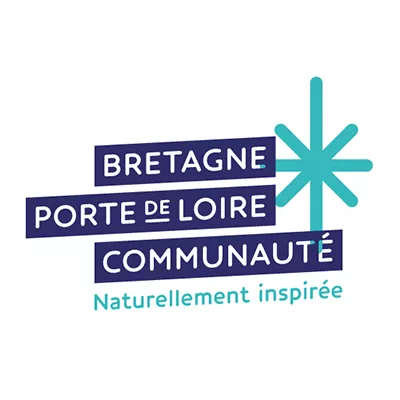General information
RDP Priority
- P4. Ecosystems management
RDP Focus Area
- 4B: Water management
RDP Measure
- M04: Investments in physical assets
Summary
Summary (Page 1 of template + web page):
This hedge management project’s objective was to improve water quality by reducing the transfer of pollutants from agricultural activities into surface waters. Following on from the first Breizh Bocage programme of 2008-2013, ‘Breizh Bocage 2’ was launched to restore and preserve local hedge networks in the Brittany Region.
The project consists of two areas of focus: the first is operational and concerns hedge plantation and rehabilitation, and the second is dedicated to the management of the programme at territorial level, including strategy planning, awareness raising and the identification of viable hedge-related projects or training opportunities.
‘Breizh Bocage’ is supported by the Brittany Region in partnership with the Loire-Bretagne Water Agency and the four county councils of the Brittany Region.
Results
- The development of 39 territorial strategies regarding hedge networks, effecting 88% of the regional territory.
- 42 jobs created for the programme support activities.
- One sociological study conducted; assessing the ways in which hedge plantation and preservation is understood in the farming community.
- 6 000 kilometres of hedge renovation and preservation financed since 2008 (almost 339 km per year). 47% of these hedges contribute to tackling erosion and 26% to preventing runoff.

Promoter
Brittany Region
Funding
Total budget 25 900 000 (EUR)
EAFRD 10 100 000 (EUR)
National/Regional 10 400 000 (EUR)
Private 5 400 000 (EUR)
Ressources
Documents
Programme Breizh Bocage 2: Farm hedge networks in France restored and preserved by local CAP-funded programme
(PDF – 1.58 Mo)
Liens
Context
Since the 1950s, hedge networks have gradually declined because of intensive farming, machinery use, lands extension, etc. Hedgerows help support the ecosystem by preserving water quality, sustaining biodiversity, and reducing pollution in a natural way. The Brittany region launched the ‘Breizh Bocage’ programme in 2008 to restore their hedge network by supporting local authorities and farmers with hedge plantation and preservation on agricultural and common lands. The local authorities engaged in Breizh Bocage account for 85% of regional territory.
Objectives
A second programme, launched in 2015, continued the work of ‘Breizh Bocage’ according to the following objectives:
- Enhance water quality and ecosystems, through the reduction of pollutants.
- Fight against soil erosion and flooding.
- Protect crops and livestock (thanks to shade, windbreaks and the hedge micro-climate effect).
- Preserve the local landscape and biodiversity.
- Promote and produce wood energy.
This second-phase ‘Breizh Bocage’ programme also takes into account prominent issues related to hedge maintenance, a process which requires time and skills that many farmers lack. In order to address this - and in contrast to the first iteration of the project - ‘Breizh Bocage’ has repositioned itself in order to highlight the ways in which hedge network maintenance can benefit and sustain farming activity.
Activities
There are two main focal points for the development of activities in the second edition of the Breizh Bocage programme.
1. Plantation and rehabilitation of hedges - This operational phase consists of three sub-activities:
- Planting hedges on selected land.
- Ensuring hedge maintenance for a 3-year period following their plantation.
- Creation of slopes and rehabilitation of hedges or slopes that are deteriorated.
2. Strategic and support activities - dedicated to the hedge stakeholder network and dissemination of information:
- In each territory, the development and evaluation of strategies was designed in response to a diagnosis of the state of the hedge network and localised water quality. This process allowed stakeholders to prioritise their actions and objectives.
- The provision of individualised technical support to beneficiaries. The project team helps to determine what type of hedge is needed, where to plant it, and how best to manage it.
- Awareness-raising among local stakeholders - including farmers and elected representatives - concerning the great many benefits of hedges.
Main results
Concerning the strategic and support activities:
- The programme enabled the development of 39 territorial strategies regarding hedge networks, effecting 88% of the regional territory.
- Several surveys were conducted to evaluate strategies implementation.
- 42 jobs were created for the programme support activities.
- One sociological study was conducted, assessing the ways in which hedge plantation and preservation is understood in the farming community.
- More broadly, the programme contributed to raising awareness about the environmental added value of hedges.
Concerning the planting and rehabilitation of hedges:
- The Breizh Bocage programme has contributed to the stabilisation of hedge networks across the region.
- The programme has financed 6 000 kilometres of hedge renovation and preservation since 2008 (almost 339 km per year).
- 47% of the hedges contribute to tackling erosion and 26% to preventing runoff.
Key lessons
Even though hedges prevent pollution, preserve soil quality, and improve biodiversity, farmers do not necessarily have the capacity, knowledge, or time to effectively manage their portion of the hedge network. The successful reintroduction of hedges on agricultural land requires innovative solutions which highlight opportunities as well as management solutions.
Through the previous Breizh Bocage programme, the issue of the hedge network management was identified because of concerns about the lack of management (particularly in the context of climatic change) and the wildlife presence. This second phase of the programme confirms that around 80% of the Brittany hedge network is still insufficiently maintained.
For the next edition of ‘Breizh Bocage’, the project initiators plan to further explore these management issues, but also to introduce the idea of ecological continuity.
